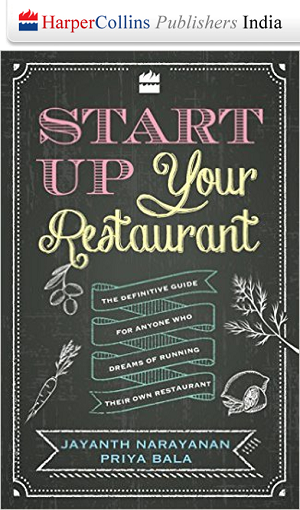
As the crushing impact of the lockdown on their businesses came to be felt restaurants across the country began to look with hope at the establishment. Given that it employs 7.3 million people and contributes to around 3% of the country’s GDP, it was natural for the industry to expect action from the government to help it survive this crisis. But as businesses remained shut for weeks together and even those open for delivery seeing dwindling sales, hopes of any such support steadily receded. The massive financial package – though its size is being debated – announced also left the food and beverage industry out of its scope.
It is heartening then that a four-member delegation of the National Restaurant Association of India was granted a phone-in meeting with finance minister in the presence of the secretaries for economic affairs and revenue on Thursday. The NRAI was represented by its president Anurag Katriar, trustees Riyaaz Amlani and Rahul Singh, and veteran restaurateur Anjan Chatterjee.
The NRAI delegation presented to the minister a list of issues on which it expected the intervention of the government, in the aftermath of the lockdown and its devastating effect on the restaurant industry. These issues were all pertaining to policy and liquidity support, the NRAI being careful not to ask for measures that would strain the exchequer in a major way. These issues were:
Employment Support: Request for unemployment pay support for employees at the lower end through ESIC corpus. Out of the approximately 3.20 crores beneficiaries of the ESIC scheme, over 50 lakh belong to the hospitality sector.
Working Capital: The NRAI requested to have urgent working capital support available at the lowest possible interest, as close to the repo rates, with a six-month moratorium for the restaurant industry.
Force Majeure for rent: Given that this pandemic is one of the worst human crises ever, the NRAI recommended that the event should be declared as force majeure – which removes liability for natural an unavoidable catastrophes.
E-commerce: The delegation apprised the finance minister and the secretaries of how major digital platforms are hurting the interests of lakhs of small and large entrepreneurs in the sector. It was requested that an immediate clarification be made, bringing them under the ambit of Press Note-2 of the Commerce ministry of December-2018. A proposal to regulate and cap platform-led discount and commission was also made to the minister.
GST: The NRAI requested – again — that restaurants should be allowed the option to avail Input Tax Credit (ITC) on GST. It put forth a proposal to have dual rates, current 5% for those not availing ITC and 12% for those availing ITC.
Refund of Pending Income Tax dues: The delegation also requested that the refund for all pending tax claims should be expedited.
About the meeting, NRAI president Anurag Katriar said, ‘We conveyed to them that we are fighting a grim battle for our existence and we will need urgent policy and liquidity support from the government to survive this phase. We informed them that if we fail to do so, it may lead to massive job losses in the sector. Each issue was discussed in detail and the minister promised to look into all of these issues at the earliest.’ He added that the minister indicated a more detailed meeting could be held at a later date and expressed his confidence in a positive outcome.
Anjan Chatterjee, who was part of the delegation, said ‘We are genuinely thankful for this opportunity and we expressed in clear terms that we are in need of vital oxygen to survive this phase. The demand to let the industry avail of Input Tax Credit has been one that we are making since the introduction of GST. This could give us considerable relief in the immediate future. The minister’s take was that this is a matter to be decided between states and the Centre and so we will wait, fingers crossed.’
Our view is that of all the issues on which the NRAI is seeking government intervention, reinstating GST input will be the easiest to implement. The proposed model will not impact GST revenues for the government and the restaurant industry is the only one which does not get input credit at this time. The other issues, though all pertinent, are also applicable to all impacted industries such as hospitality, travel and tourism and will call for action on a wider scale.
In the best case scenario that the industry receives the support it needs and reopens there will still be daunting challenges to overcome. ‘We are going to be the last ones to open,’ Chatterjee says. ‘While we must follow all hygiene protocols, I believe that the sort of social distancing norms that are being proposed – which will see restaurants have to bring down their seating capacity to half or one-third of the present size – it will not be possible to run a viable business. Also, I think restaurants are a happiness business. While restaurants do everything to maintain hygiene, customers will have to repose faith in them and make them the hubs of socializing and joy they have always been.’










